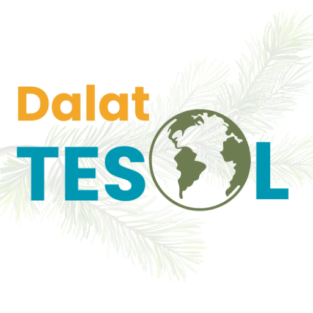By Dalat TESOL
Helping novice researchers turn big ideas into focused, answerable questions
📌 Introduction
Many graduate students begin their research journey with a general topic—like motivation, translanguaging, or AI in language learning—but struggle to turn that into a specific, researchable question.
This is a normal (and crucial) part of the research process.
A clear, well-defined research question (RQ) is the compass of your study. It guides your design, methods, analysis, and even the structure of your thesis or article.
In this article, we walk you through:
- The difference between a topic and a research question
- Common types of research questions in TESOL
- A step-by-step process to go from broad topic to focused RQ
- Real examples (good and bad)
- Tips to evaluate your RQ
🧭 1. From Topic to Research Question: What’s the Difference?
| Topic | Research Question |
|---|---|
| Learner motivation | How does intrinsic motivation affect Vietnamese EFL students’ willingness to speak in class? |
| Peer feedback | What are the effects of anonymous vs. open peer feedback on writing accuracy in a blended EFL class? |
| ChatGPT in writing | How do Vietnamese undergraduates use ChatGPT during academic essay writing, and how does it influence their planning and revision behavior? |
✅ A good RQ is focused, researchable, context-specific, and aligned with your methods.
📊 2. Common Types of Research Questions in TESOL
| RQ Type | Example | Suitable for |
|---|---|---|
| Descriptive | What types of code-switching occur in EMI classrooms? | Observation, CA, discourse |
| Exploratory | How do learners perceive translanguaging in speaking assessments? | Interviews, open-ended surveys |
| Comparative | Do students who receive peer feedback perform better in writing than those who receive teacher feedback? | Experimental/quasi-experimental |
| Correlational | Is there a relationship between learners’ motivation and use of AI writing tools? | Surveys, regression |
| Explanatory | Why do some learners avoid speaking even when they’re competent? | Interviews, thematic analysis |
| Evaluative | How effective is a four-week AI literacy workshop in improving critical thinking among EFL students? | Mixed methods, pre-post design |
🛠️ 3. Step-by-Step: How to Develop a Research Question
🔹 Step 1: Choose a Topic That Matters to You
Reflect on:
- What interests you in your teaching or learning experience?
- What problems do you see students face?
- What debates or gaps exist in the literature?
🎓 Example: You notice that your students are using ChatGPT to write essays.
🔹 Step 2: Narrow the Context
Think about:
- Level (university, high school?)
- Skills (writing, speaking?)
- Tool/intervention (ChatGPT, peer feedback?)
- Target variable (motivation, accuracy, perceptions?)
🎯 Narrowed: University students using ChatGPT for academic writing
🔹 Step 3: Decide What You Want to Know
Some guiding prompts:
- What do they do?
- What do they feel or think?
- What changes over time?
- What effects does something have?
📝 “I want to understand how they actually use ChatGPT — not just their opinions.”
🔹 Step 4: Phrase It Clearly
- Use simple, precise wording
- Avoid vague words like “impact,” “affect,” or “thing” unless defined
- Specify population, context, and focus
❌ Vague: What is the effect of AI on writing?
✅ Clear: How do Vietnamese EFL students use ChatGPT during academic writing, and how does it affect their revision process?
🧪 4. Good vs. Weak Research Questions
| Weak RQ | Why It’s Weak | Improved RQ |
|---|---|---|
| How do students feel about English? | Too broad, unfocused | What are Vietnamese high school students’ attitudes toward English speaking in EMI classes? |
| What is the effect of games? | Vague, unclear variable | How do storytelling games influence vocabulary retention among Grade 6 EFL learners? |
| Does AI help students? | Too general, lacks focus | How does using ChatGPT affect students’ self-efficacy in academic writing tasks? |
🧰 5. Evaluate Your Research Question
Use this quick checklist:
| Criterion | Yes/No |
|---|---|
| Is it clear and specific? | ✅ |
| Is it researchable (with available data)? | ✅ |
| Does it fit within your time/resources? | ✅ |
| Is it grounded in a real context (learners, tools, settings)? | ✅ |
| Can you answer it with your chosen methods? | ✅ |
If you answer “no” to 2 or more → revise your question before proceeding.
✏️ 6. Writing RQs in Academic Style
Some useful templates:
- “To what extent does [X] influence [Y] among [population]?”
- “How do [learners] perceive [phenomenon] in [context]?”
- “What patterns of [behavior] are observed when [condition]?”
- “Is there a relationship between [A] and [B] among [group]?”
🧠 Academic phrasing is not just about sounding formal — it ensures clarity and replicability.
📚 7. Further Reading
- Dornyei, Z. (2007). Research Methods in Applied Linguistics
- Ratan, S., Anand, T., & Bhatnagar, P. (2019). Formulating research questions: A critical step for facilitating good research. Indian Journal of Anaesthesia, 63(9), 611.
- Mackey, A., & Gass, S. (2016). Second Language Research: Methodology and Design
🌿 Final Thoughts
Crafting a good research question is not a minor step—it’s the foundation of your entire project. Don’t rush it.
“A well-defined question is halfway to the answer.” — TESOL wisdom
Keep it specific, meaningful, and feasible. Ask a question worth answering — and that you can answer with the time and tools you have.
